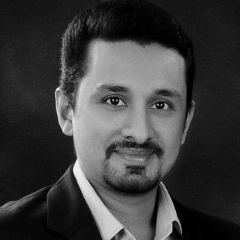Although 'memory' is a buzzword we hear on a daily basis, many of us still subscribe to some misconceptions about it. Here’s an attempt to debunk a few deep-rooted myths about memory.
Human memory works like a digital recorder. Many people hold on to the belief that human memory blots everything that appears in front of the eyes, just like a video camera. We think our memory records and stores everything intact so that we can later retrieve it for inspection.
The very first idea of attributing unrealistic permanence and accuracy to human memory is wrong. In reality, our memories are nothing but a distorted representation of the events we have experienced. These representations are often subjected to changes.
Our brain keeps on rewriting the same events to its hard disk by frequently changing the patterns. These distortions are caused by events influenced by our own emotions, hunches, belief systems, etc. In short, fluid narratives of our present and past experiences are constantly recreated.
Forgetting occurs gradually
According to a recent Norwegian University survey, a majority of the population, including psychologists believe that forgetting is a gradual phenomenon. They believe that fading of memory occurs as if in an aging film reel. But the fact is that most of the memory erosion happens immediately after the occurrence of an event.
Confidence, a reliable indicator of memory accuracy
The judicial systems around the world give too much importance to eye witnesses, especially if the witness is really confident about his memory. But studies show that accuracy and confidence are weakly correlated. Repeated questions or suggestions give us more confidence about our memory, but it has nothing to do with the accuracy.
Traumatic memories can be repressed and "recovered" years after they occurred.
It’s a common notion that emotional events are permanently copied into our memory. People are so confident that dramatic and traumatic experiences can never be forgotten and can easily be retrieved accurately. But in fact, even emotional events are just like any other memory when it comes to forgetting.
What do we retrieve?
Modern psychology has proved that even though we have a pretty good memory of the general gist of happenings, we are so erroneous in recollecting the actual details. In our memories, the missing part of the events is unconsciously patched up by our own desires, perceptions, expectations, preconceived notions, belief systems, and knowledge. We blindly believe in our own memory, which in reality is a mix of facts and fictions. Each one’s memory is a subjective memory, which is more often heavily biased.
(The author is a behavioral psychologist)
Read: Columns | Demystifying Thoughts | Debunking a 'brain myth' that just refuses to go away

























 Representational Image
Representational Image
